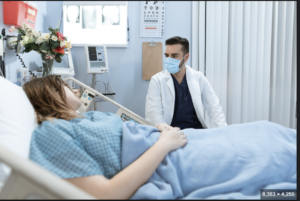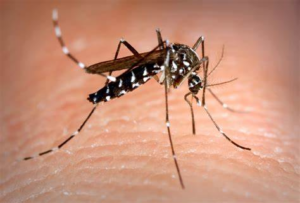Ulcers: 15 signs and symptoms you shouldn’t ignore
5 min read
Also known as gastric or peptic ulcers, stomach ulcers happen when part of the stomach or intestinal lining becomes eroded. For some, particularly older individuals, this condition may present no symptoms. However, others experience a variety of issues from mild discomfort to serious side effects. Luckily, with treatment, most stomach ulcers will heal within a couple of months. Let’s take a look at some of the signs of this problem.
Acid reflux
Acid reflux tends to be a sign of gastroesophageal reflux disease (GERD), which can erode the lining of the esophagus and stomach. Over time, this health condition can lead to stomach ulcers, among other problems. Fortunately, if you have acid reflux there are lifestyle changes you can make to curb it. These include changing your eating habits, losing weight, and avoiding trigger foods. Speak to your doctor for more information.

Unexplained weight loss
Losing weight without changing your diet or physical activity levels could be a sign that something is not right. This issue may be caused by a variety of digestive problems, including stomach ulcers, according to experts from the Air Force Center of Excellence for Medical Multimedia. Should you notice a sudden drop in your weight, contact a doctor.
Feeling full fast
If you normally have a healthy appetite, you are sure to notice when you start feeling full faster than usual. This is one of the warning signs of a stomach ulcer, according to American Family Physician. Should you notice that you feel full without eating a regular portion of food, you may want to speak to your doctor and get a check-up.
Intolerance to fatty foods
Got stomach pain after eating high-fat meals? An intolerance to fatty foods is one of the major signs of a stomach ulcer. You might want to start keeping a food diary, should you notice that certain foods cause a reaction. You can also speak to your doctor and get their advice on the next steps to take.

Empty feeling after eating
Needless to say, we all get hungry at various times throughout the day. That’s completely natural. However, if you start to feel hunger or a sense of emptiness in your stomach a few hours after eating a full meal, that could be a sign of a stomach ulcer, according to the experts at American Family Physician. If you are experiencing this sign along with other symptoms of a stomach ulcer, speak to your doctor.
Burning stomach pain
Perhaps the most common sign of a stomach ulcer is a continuous burning sensation in the stomach. This feeling is often due to excess stomach acid and tends to be worse when you haven’t eaten. For example, you may notice that the pain decreases when you have a quick snack or meal. Speaking to a doctor will help you get a full diagnosis.
Bloating
Acid reflux often makes the stomach bloat with gas. For that reason, when you experience bloating around the abdominal area, it could be a sign of a stomach ulcer. However, you should note that there may be other reasons for this issue, such as constipation or a food intolerance. Book an appointment with your doctor and get it checked out.
Pain directly after you eat
Experiencing pain directly after you’ve eaten a meal or snack is a worrying sign. According to the experts at American Family Physician, this could be a sign of a stomach ulcer. Whenever you start to have a stomach ache on a regular basis, it’s worth seeking the help of a medical professional. See a doctor for a full check-up.
Red or black sick
Vomiting blood may be symptomatic of a serious medical problem. One cause could be that you have a stomach ulcer, which has caused damage to an internal artery. When you vomit, you may notice that the sick has a coffee-ground-like consistency or that it has a red or black tone. When you notice this warning sign, see a doctor as soon as possible.
Sudden pain in the belly
In extreme cases, an ulcer can completely erode part of the stomach lining and cause a hole, or perforation. When this happens, many people experience a sudden pain in their belly. In some cases, this feeling is so extreme that it causes the person to collapse. Of course, if you experience a sharp, sudden pain, you need to seek immediate medical help.
Fever
Should the stomach ulcer cause a hole in the lining, people may also experience a high fever. This may come on suddenly, along with stomach pain, sickness and even passing out. Whenever you have a high fever and other symptoms of a stomach ulcer, you should see a doctor.
Dizziness
Bouts of dizziness could be linked to a variety of medical problems. According to the experts at American Family Physician, this symptom could be linked to a stomach ulcer. Should you find that you feel dizzy and also feel sick at the same time, you should see a specialist and get a diagnosis. It’s better to be safe than sorry.
Blood in bowel movements
In some cases, a stomach ulcer can bleed internally, which may lead to black or red blood spots in your bowel movements. It’s important to remember that there could be a range of medical reasons for this sign, such as piles (hemorrhoids), a tear in the the lower opening of the digestive tract, or broken blood vessels. However, it could be something more serious. Speak to a doctor when you notice this sign.
Tiredness or a lack of energy
Should you have noticed blood in your bowel movements, you may find that this is accompanied by a sense of tiredness or general lack of energy. While this may not always be related to a stomach ulcer, it could be symptomatic of gastric problems. Be sure to note down all of the symptoms you are experiencing ahead of seeing your doctor.
Anemia
One of the main complications of a stomach ulcer is that it can cause long-term bleeding, which may lead to anemia. The side effects of this condition include being extremely pale, feeling tired, having heart palpitations, and even feeling breathless. Should you experience a combination of these issues, contact your doctor and book an appointment.
Source: Ulcers: 15 signs and symptoms you shouldn’t ignore (msn.com)


